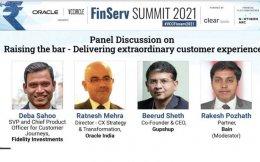 Healthcare and medical data is being generated at a record pace from medical devices, health monitors, patient records as well as medical research. This data can be of immense help in several ways, ranging from large-scale population health management to highly personalised medical decision support. How then can the healthcare domain leverage large volumes of data to their advantage? While Data Analytics can help in leveraging healthcare data, it must be remembered that traditional analytics processes can only account for structured data and about 88 percent of all data volumes is unstructured. By restricting itself to traditional analytics, the healthcare domain is likely to lose out on the wealth of intelligent insights that lies within unstructured data. It is no wonder that the healthcare sector is now turning to cognitive computing to help leverage data for improving and helping lives. Cognitive computing technology can have far reaching effect on areas of research, diagnostics, treatment and patient outcomes. From identifying hidden connections to processing large volumes of data in seconds, these systems can be an invaluable asset to healthcare and drug researchers. It can help doctors understand symptoms, correlate to other cases and contextually analyse information to make better diagnoses, and consequently better treatment. Manipal Hospital uses IBM’s Watson™ for Oncology, a cognitive computing platform trained by Memorial Sloan-Kettering to analyse data and identify evidence-based treatment options, help oncologists to provide cancer patients with individualised healthcare. It doesn’t end here. Public health professionals will be able to better understand epidemics and seasonal health challenges and be better prepared for them. By applying cognitive technologies to the vast volumes of data collected from wearable technology by companies like Under Armour, doctors will be able to understand their patients’ health concerns better and use this data as a diagnostic tool when needed. Health insurance packages can then be personalised and hospitals can streamline their processes and operations with this technology.
Healthcare and medical data is being generated at a record pace from medical devices, health monitors, patient records as well as medical research. This data can be of immense help in several ways, ranging from large-scale population health management to highly personalised medical decision support. How then can the healthcare domain leverage large volumes of data to their advantage? While Data Analytics can help in leveraging healthcare data, it must be remembered that traditional analytics processes can only account for structured data and about 88 percent of all data volumes is unstructured. By restricting itself to traditional analytics, the healthcare domain is likely to lose out on the wealth of intelligent insights that lies within unstructured data. It is no wonder that the healthcare sector is now turning to cognitive computing to help leverage data for improving and helping lives. Cognitive computing technology can have far reaching effect on areas of research, diagnostics, treatment and patient outcomes. From identifying hidden connections to processing large volumes of data in seconds, these systems can be an invaluable asset to healthcare and drug researchers. It can help doctors understand symptoms, correlate to other cases and contextually analyse information to make better diagnoses, and consequently better treatment. Manipal Hospital uses IBM’s Watson™ for Oncology, a cognitive computing platform trained by Memorial Sloan-Kettering to analyse data and identify evidence-based treatment options, help oncologists to provide cancer patients with individualised healthcare. It doesn’t end here. Public health professionals will be able to better understand epidemics and seasonal health challenges and be better prepared for them. By applying cognitive technologies to the vast volumes of data collected from wearable technology by companies like Under Armour, doctors will be able to understand their patients’ health concerns better and use this data as a diagnostic tool when needed. Health insurance packages can then be personalised and hospitals can streamline their processes and operations with this technology.

Cognitive computing powered virtual assistants or apps can become personal health coaches. For example, CaféWell Concierge analyses the resources, demographics, health status and even behavioural tendencies of the user to deliver relevant health recommendations. These are refined and improved as the system continues to learn over time Technology can only be considered truly effective if it helps mankind in areas that matter the most. Healthcare is one of those. Cognitive computing has the potential to be that one technology phenomenon with far-reaching impact on the healthcare domain. To know how cognitive computing prescriptions can transform your healthcare business, be a part of outthink tour. Follow IBM on
- LinkedIn: www.linkedin.com/company/8985085
- Twitter: twitter.com/ibm_in




